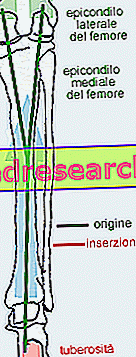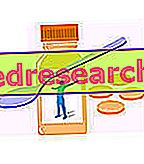Definition
Drugs without a medical prescription - more simply defined as SOP - are those medicines which can be dispensed in the pharmacy without the presentation of the medical prescription, since they are intended for the treatment of disorders considered mild and transient.

From the point of view of the classification of medicines based on the supply and reimbursement regime, most of the drugs without a medical prescription obligation belong to band C, therefore, their cost is fully charged to the citizen and not refundable by the Health System Nazionale (SSN), except in specific cases provided for by law.
Dispensing and costs
As mentioned, the patient can buy the drugs without a medical prescription directly at the pharmacy and without the presentation of any type of medical prescription.
SOP drugs can be sold both in pharmacies and in drugstores, as well as in so-called "health corners" in supermarkets. Furthermore, they can be sold online through pharmacy websites authorized by the health ministry.
The prices of SOP drugs can be established by individual pharmacies, parapharmacies or sales points which, if they deem it appropriate, are free to apply discounts of different value.
Furthermore, it should be remembered that if a patient asks the pharmacist for the dispensation of a specific drug, for which there is the corresponding equivalent medicine (or generic drug, if you prefer) with a lower price, the pharmacist is obliged to inform the patient and deliver it instead of the "branded" medicinal product, even more so if it is the patient himself who requests it.
SOP and OTC drugs: what differences?
On the basis of a first superficial analysis and in the light of what has been said so far, drugs without a medical prescription may seem to be totally and completely overlapping with OTC drugs, or over-the-counter drugs, if you prefer.
In truth, there is a substantial difference between these two categories, concerning the advertising sphere. In fact, while public advertising is allowed for OTCs, the law prevents SOPs from being advertised in any way.
Furthermore - unlike the case of over-the-counter drugs - drugs without a prescription need to be placed on the pharmacy counter or in areas where patients can freely access.
Therefore, the patient can have access to these drugs only through direct interaction with the pharmacist. This happens because it is believed that these drugs - although considered safe and for which the monitoring of the doctor does not appear to be fundamental - should be dispensed only on the advice of a professional figure such as the pharmacist (not by chance, the drugs without obligation of medical prescription are sometimes referred to as " council drugs ").



